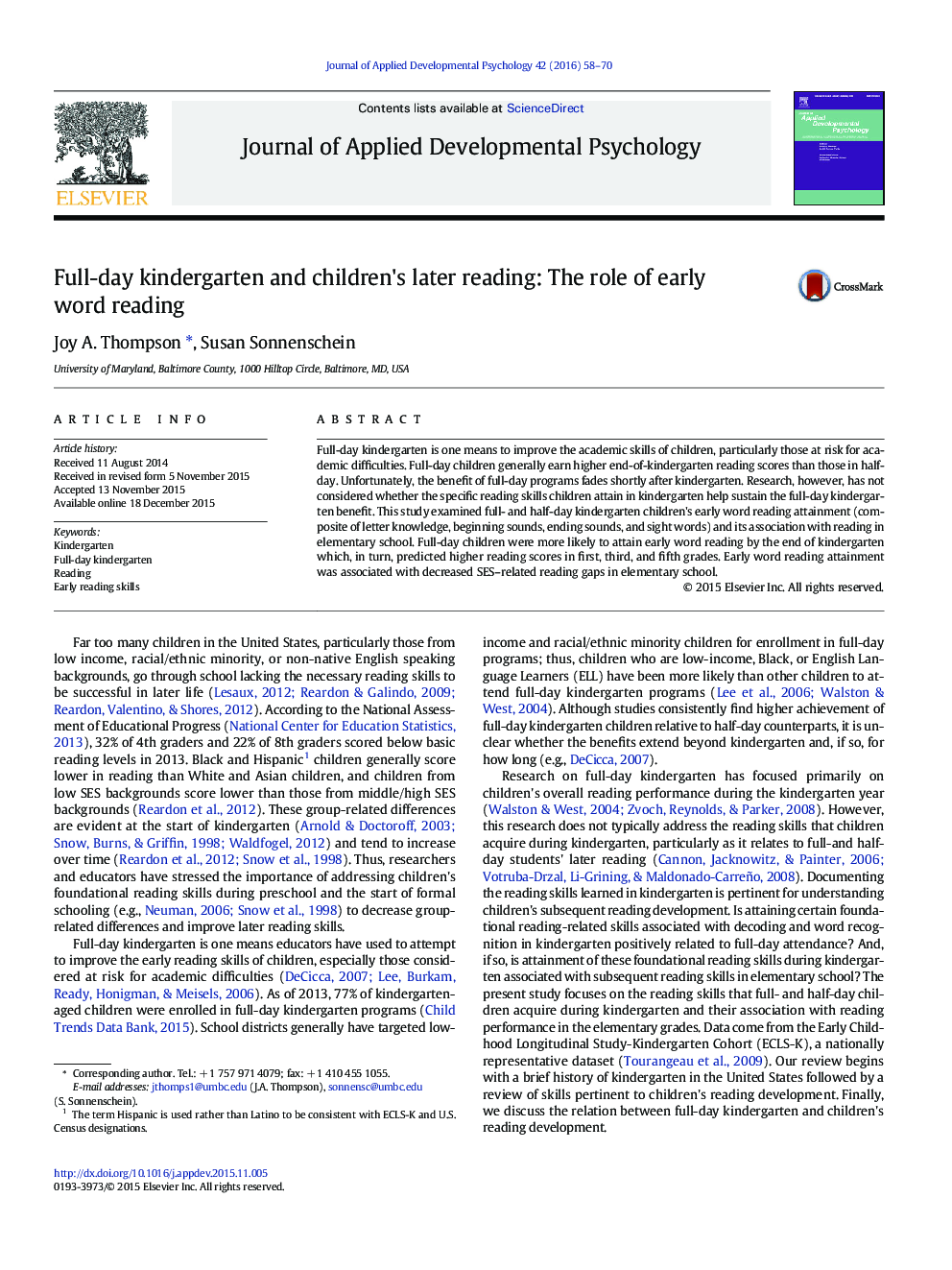| Article ID | Journal | Published Year | Pages | File Type |
|---|---|---|---|---|
| 6842860 | Journal of Applied Developmental Psychology | 2016 | 13 Pages |
Abstract
Full-day kindergarten is one means to improve the academic skills of children, particularly those at risk for academic difficulties. Full-day children generally earn higher end-of-kindergarten reading scores than those in half-day. Unfortunately, the benefit of full-day programs fades shortly after kindergarten. Research, however, has not considered whether the specific reading skills children attain in kindergarten help sustain the full-day kindergarten benefit. This study examined full- and half-day kindergarten children's early word reading attainment (composite of letter knowledge, beginning sounds, ending sounds, and sight words) and its association with reading in elementary school. Full-day children were more likely to attain early word reading by the end of kindergarten which, in turn, predicted higher reading scores in first, third, and fifth grades. Early word reading attainment was associated with decreased SES-related reading gaps in elementary school.
Keywords
Related Topics
Social Sciences and Humanities
Psychology
Applied Psychology
Authors
Joy A. Thompson, Susan Sonnenschein,
